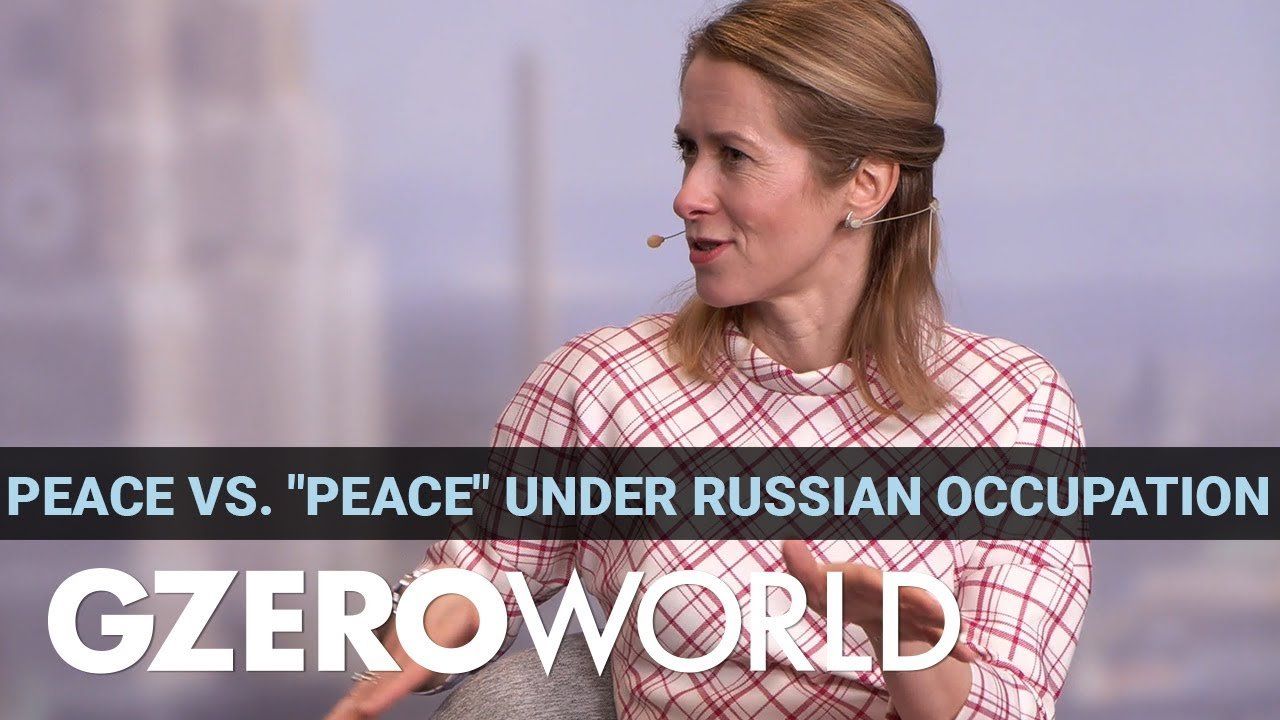GZERO World Clips
"Peace" under authoritarian occupation isn't peaceful: Estonia's Kaja Kallas

"Peace" under authoritarian occupation isn't peaceful | Estonia's Kaja Kallas | GZERO World

Everyone knows that war is bad and peace is good, but what about the difference between peace and "peace"? Estonia's Prime Minister Kaja Kallas sat down with Ian Bremmer at the Munich Security Conference to discuss the war in Ukraine and how her perspective has changed since the Russian invasion began one year ago. Europe is a small region, says Kallas, and maintaining unity in the face of Russian aggression could come down to acknowledging European countries' lived experiences and not-so-distant history.
Kallas makes the important distinction between the post-World War II eras in Eastern vs. Western Europe. While countries like France and Germany were rebuilding their economies and national institutions, Soviet-occupied countries in the Eastern bloc experienced violence, persecution, and economic stagnation. "For 50 years we were occupied, and we were not really missed," says Kallas, "But we missed you."
Catch Ian Bremmer's full interview with Kallas in this week's episode of "GZERO World with Ian Bremmer," airing on US public television stations nationwide. Check local listings.
In a major victory for its efforts to diminish cartels, the Mexican government said Sunday that it had killed the leader of one of the country’s most powerful cartels, with intelligence support from a new US military-led task force.
Europe can no longer rely on the US and must step up to defend its own future, Ian Bremmer reports from the Munich Security Conference.
The Supreme Court has struck down President Trump’s use of the national emergency clause to impose sweeping tariffs around the world. In this Quick Take, Ian Bremmer explains why this ruling was predictable and why it’s a major setback for Trump’s trade strategy.
“For India, AI stands for all inclusive,” reads the billboard outside this week’s AI Impact Summit in New Delhi organized by the Indian government, the first major gathering on the subject in the Global South.